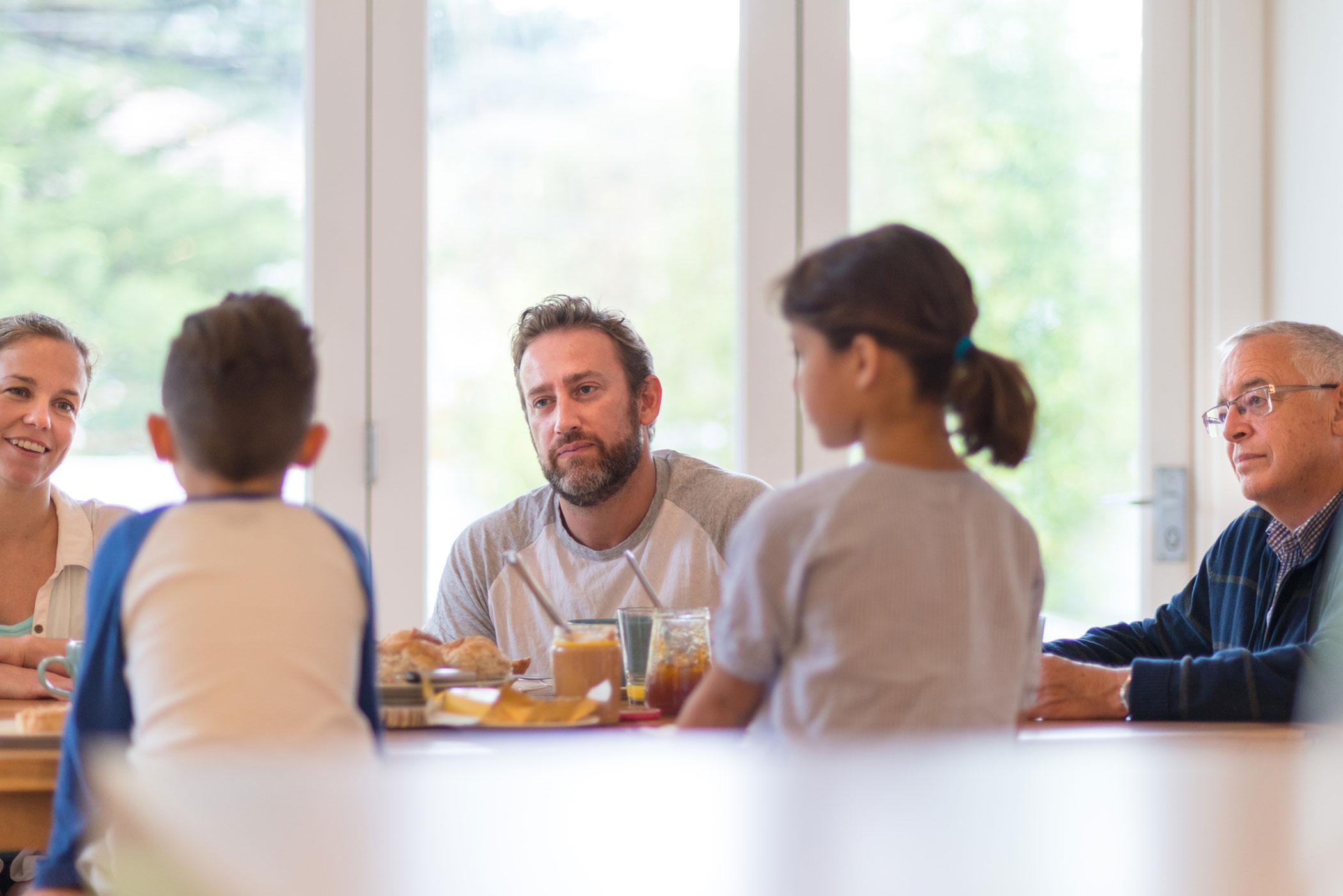The Family Dinner

Family dinners were commonplace only a few decades ago – families gathered for an evening meal together without the distractions of television, social media, and organized sports and afterschool activities. Today, few families are able to sit down regularly for a family meal; rather, family dinners are sporadic, depending on schedules of parents and kids—this is modern life!
Recent research indicates children whose families eat dinner together benefit in multiple ways, from increased verbal ability, decreased stress, healthier diets, and a sense of belonging and routine. While a family dinner every day may be impossible, families can find some time to gather around food – brunch on Sunday, Friday night pizza and salad, or the spontaneous dinner out.
Parents ask me what they should talk about during dinner, or what expectations they should have of their children at the table. The benefit of family dinners comes from relaxed time together. This is not a time for major problem-solving or bringing up topics that may be conflictual, and it goes without saying that devices—either child’s or parent’s—should not be present. The point is to spend time together, enjoy each other’s company, and share news that may be interesting. Dinners can be quiet, too, there is no need for forced conversation if everyone is in a quiet mood—just having family nearby and available has impact. While manners are important so siblings don’t annoy each other, it should not be a focus, but a gentle reminder. The food does not need to be fancy—even take-out food shared together counts!
Being together, relaxing, taking time away from distractions, feeling accepted—these are the things that create a happy family meal. The magic comes from stringing these simple gatherings together over time—creating a mutually shared history together as a family. Make an effort to sit down to a meal with your family, it is beneficial to everyone, and well worth the investment, now and in the future.
References:
- Gillman MW, Rifas-Shiman SL, Frazier AL, Rockett HR, Camargo CA Jr, Field AE, Berkey CS, Colditz GA. (2000). Family dinner and diet quality among older children and adolescents. Archives of Family Medicine. (3), 235-240.
- Hofferth, S. L. and Sandberg, J. F. (2001). How American children spend their time. Journal of Marriage and Family, (63), 295–308. doi:10.1111/j.1741-3737.2001.00295.x
- Snow, C. E. and Beals, D. E. (2006), Mealtime talk that supports literacy development. New Directions for Child and Adolescent Development, 51–66. doi:10.1002/cd.155
- The National Center on Addiction and Substance Abuse (2007).The importance of family dinners IV .[White paper]. Columbia University. Retrieved from: https://www.centeronaddiction.org/addiction-research/reports/importance-of-family-dinners-2007.
